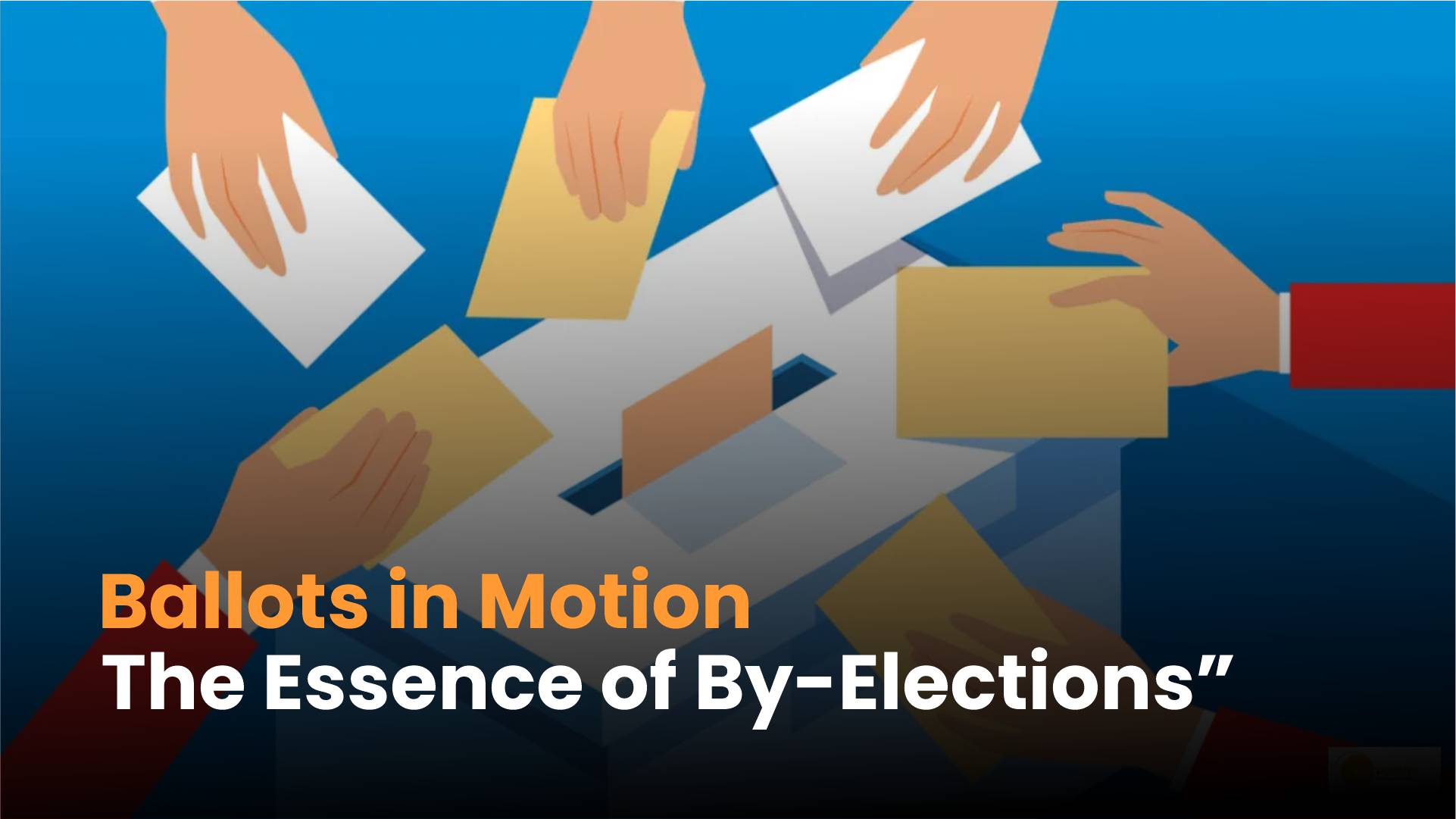By-elections, also known as special elections or midterm elections in some countries, are a significant aspect of democratic governance worldwide. They occur when a seat in a legislative body becomes vacant between general elections. By-elections serve to fill these vacancies and ensure continuous representation of constituents in government. This article explores the reasons behind by-elections, their importance, and the rules governing their conduct.
Reasons for By-Elections
- A seat in a legislative body may become vacant due to the death, resignation, disqualification, or expulsion of a sitting member.
- Elected officials might resign from their current positions to assume higher offices, such as ministerial positions or appointments to other government bodies.
- In some cases, the results of a general election may be invalidated due to irregularities or legal challenges, necessitating a new election.
- Changes in electoral boundaries or redistricting may require elections to be held in newly formed or modified constituencies.
Importance of By-Elections
Ensuring Representation: By filling vacant seats promptly, by-elections ensure that constituents have continuous representation and a voice in legislative decision-making.
Democratic Accountability: They provide an opportunity for voters to hold their representatives accountable between general elections, reaffirming the principle of democratic governance.
Balancing Power: By-election results can potentially alter the balance of power in legislative bodies, influencing policy decisions and governance dynamics.
Rules and Procedures
The rules and procedures governing by-elections vary across countries and jurisdictions, but several common principles exist:
Notification and Announcement: Electoral authorities officially announce the vacancy and set a date for the by-election. This date typically allows sufficient time for nomination of candidates and campaigning.
Candidate Eligibility: Candidates must meet eligibility criteria, such as age, citizenship, and residency requirements, as stipulated by electoral laws.
Nomination Process: Candidates are required to submit nomination papers within a specified timeframe, accompanied by supporting documents and a deposit, if applicable.
Campaigning: Similar to general elections, candidates campaign to garner support from constituents through rallies, debates, media appearances, and outreach activities.
Voting: On the designated election day, eligible voters in the constituency cast their votes at polling stations. Various voting methods, including electronic voting machines or paper ballots, may be used depending on the country.
Counting and Declaration of Results: After voting concludes, ballots are counted, and results are declared. The candidate with the highest number of votes is declared the winner and fills the vacant seat.
Legal Recourse: Provision for legal challenges or recounts exists in many jurisdictions to ensure fairness and accuracy in the electoral process.
Positive Takeaway
By-elections are a fundamental component of democratic governance, ensuring continuity and representation in legislative bodies. They provide an opportunity for constituents to exercise their right to choose their representatives and hold them accountable. Understanding the reasons behind by-elections and the rules governing their conduct is essential for fostering transparency, legitimacy, and public trust in electoral processes. As democratic societies evolve, the conduct and management of by-elections continue to play a pivotal role in upholding the principles of democracy and ensuring effective governance.


